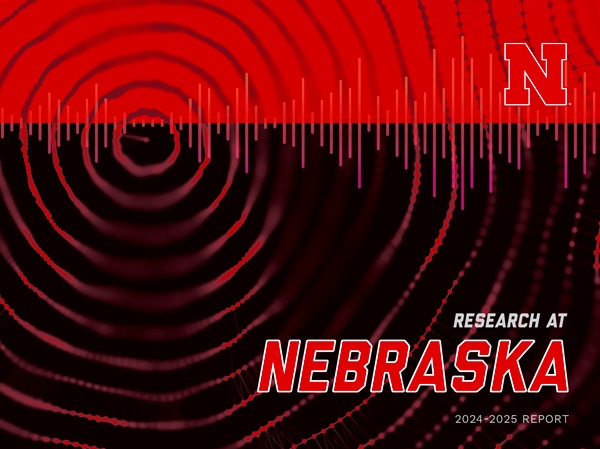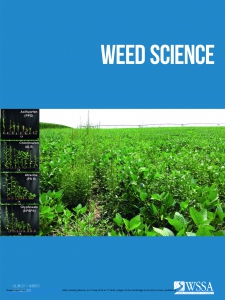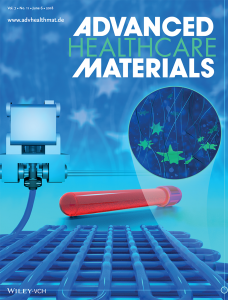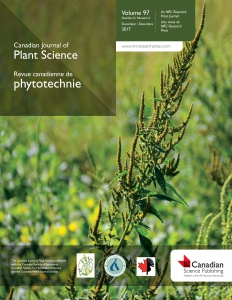News & Information
Latest Stories
Internal search opens for vice chancellor for research and innovation
The University of Nebraska–Lincoln has launched an internal search for its next vice chancellor for research and innovation.
MoreBiography spotlights Virginia Faulkner’s legacy at Nebraska Press
While Virginia Faulkner’s name isn’t widely known today, her work at the University of Nebraska Press left a mark. That story is told in a new book by Montana-based author Brad Bigelow, “Virginia Faulkner: A Life in Two Acts.”
MoreNew research shows God-believing ‘nones’ align closely with religious Americans
Nearly one in three Americans now identify as religious “nones,” and new research from University of Nebraska–Lincoln sociologist Philip Schwadel suggests that this fast‑growing group is far more ideologically diverse than commonly assumed.
MoreResearch shows companies can gain advantage by prioritizing customer privacy
For many companies, customer privacy is often seen as a regulatory burden that limits data use and personalization rather than as a business opportunity. Research by Natalie Chisam at the University of Nebraska–Lincoln reveals companies that handle customer data with transparency, care and clear communication can gain a measurable competitive advantage through what researchers call privacy stewardship.
MoreMore Stories
Nebraska scientists establish biochar on-farm research network
Two University of Nebraska–Lincoln scientists, partnering with American Farmland Trust and four Nebraska farmers, have established a biochar on-farm research network. It is among the first and largest in the United States
MoreResearchers explore ways to identify, enhance resilience among youth
As many as three-quarters of the nearly 25,000 American youth in residential care have experienced significant trauma, including maltreatment, poverty and, for many, systemic racism and discrimination.
Research suggests that such trauma increases risk for mental and behavioral health problems. However, some youth in residential care with trauma still display steadfast resilience, functioning well even in the presence of significant risk. But it is unclear whether resilience — a dynamic process of adjusting successfully to stress and adversity — is structured and functions the same for youth in residential care as it does for similar youth in the general community.
MoreUniversity of Nebraska launches AI Institute to lead in ethical innovation, research and workforce development
The University of Nebraska has launched the Artificial Intelligence Institute. The institute is a systemwide initiative that positions Nebraska as a national leader in shaping the future of responsible, human-centered artificial intelligence.
MoreRamamurthy pursuing advanced speed, intelligence, efficiency of data networks
A Husker computer scientist is leading three projects aimed at advancing the speed, intelligence and efficiency of data networks — research that sits at the intersection of artificial intelligence and next-generation connectivity.
MoreKhalimonchuk continues research into mitochondria’s role in diseases
More than 150 human diseases — including Lou Gehrig’s, Parkinson’s and Alzheimer’s — are linked to mitochondrial failure, and one Nebraska scientist is working to decode why.
A five-year, $2 million renewal of Oleh Khalimonchuk’s Maximizing Investigators’ Research Award from the National Institutes of Health — one of the agency’s most competitive and prestigious funding mechanisms — has set the stage for the next chapter of his work.
MoreFaculty invited to research identity area workshops, R&I Convening
This spring, R&I will offer a series of virtual ideation workshops designed to help faculty advance research, scholarship and creative endeavors within the university’s six research identity areas.
MoreTopics
Nebraska Athletic Performance Laboratory
Center for Resilience in Working Agricultural Landscapes
National Endowment for the Humanities
Center for Root and Rhizobiome Innovation
Materials Research Science and Engineering Center
Center for Biotechnology
Nebraska Center for Redox Biology
Nebraska Center for Integrated Biomolecular Communication
Gnotobiotic Mouse Program
Nebraska Governance and Technology Center
Arts and Humanities Research Engagement Program













